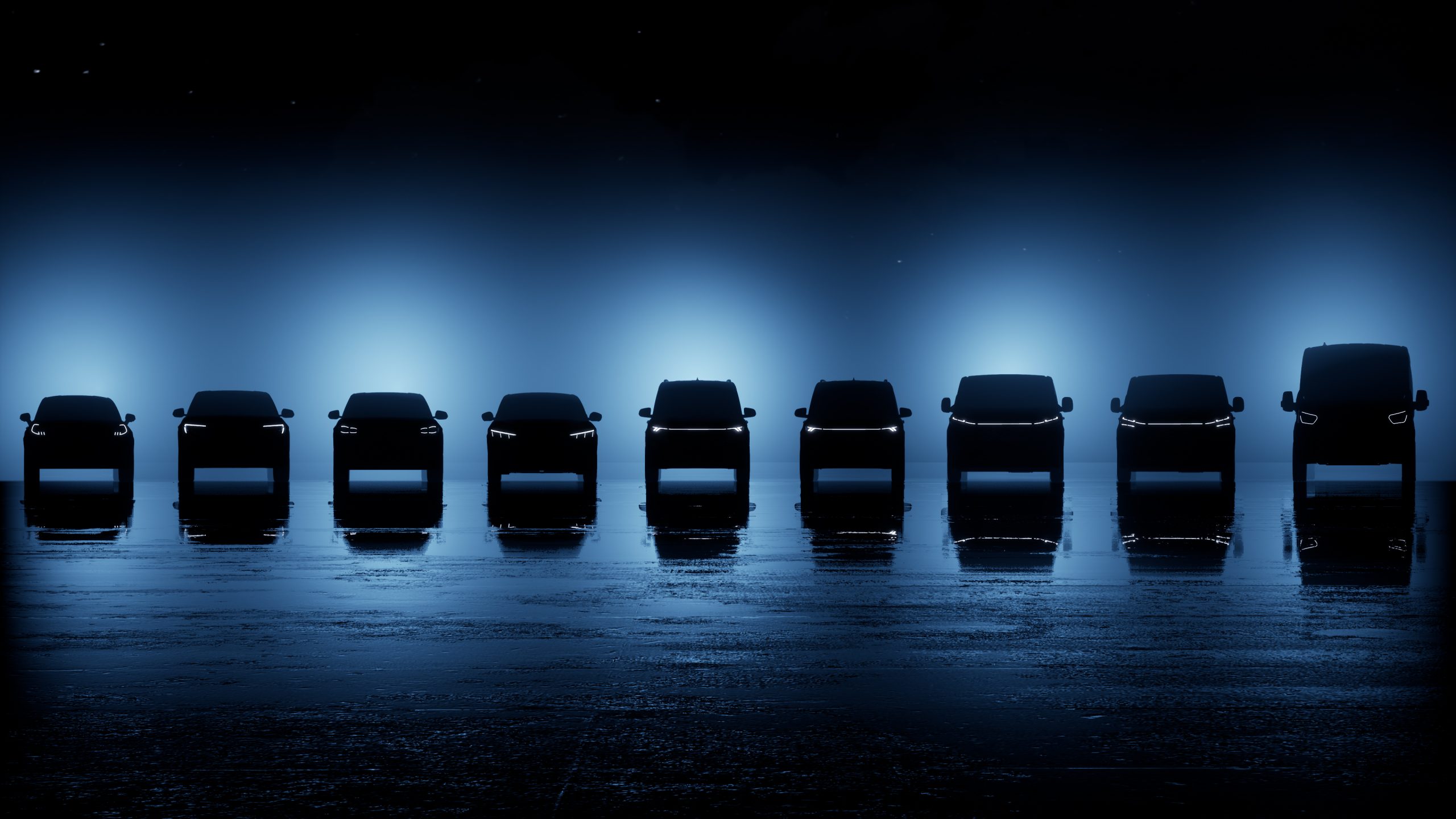
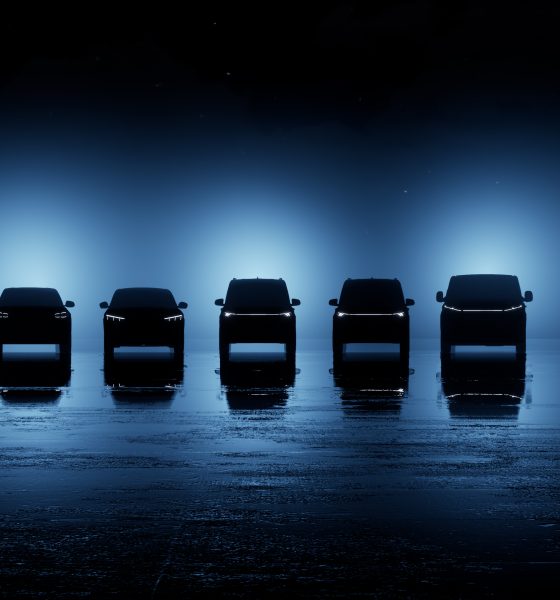
News
Ford Model e unit announces massive expansion of EV initiative in Europe: 7 new EVs by 2024
Ford’s electric vehicle unit — known as Model e — announced today that it would take massive steps to expand its electric vehicle project in Europe. Ford, which recently split its electric vehicle and combustion engine businesses into two divisions, is aiming to roll out seven new electric vehicles in Europe by 2024 with an annual production capacity of 600,000 vehicles by 2026.
Ford announced the expansion plan today, recognizing the accelerating pace of electrification in the European market. “I am delighted to see the pace of change in Europe – challenging our entire industry to build better, cleaner, and more digital vehicles. Ford is all-in and moving fast to meet the demand in Europe and around the globe,” Ford CEO Jim Farley said in a statement. “This is why we have created Ford Model e – allowing us to move at the speed of a start-up to build electric vehicles that delight and offer connected services unique to Ford and that are built with Ford-grade engineering and safety.”
Ford’s Model e division aims to take advantage of a Tesla-like business model that completely separates the electric vehicle projects from the traditional combustion engine powertrains that Ford built its legacy on. As one of the most-committed legacy automakers in the transition to electrification, Ford recently announced it would commit to a production goal of 600,000 EVs by the end of 2023.
In Europe, electric vehicles have become extremely popular, becoming a more common choice of consumers than combustion engine vehicles in some regions. Ford is turning some focus toward this market as it is likely to be one of the biggest catalysts to EV sales company-wide. Ford said it expects annual sales in Europe to exceed 600,000 units in 2026, reaffirming its intention to deliver a 6 percent EBIT margin in Europe in 2023.
“Our march toward an all-electric future is an absolute necessity for Ford to meet the mobility needs of customers across a transforming Europe,” Ford of Europe Chairman Stuart Rowley said. “It’s also about the pressing need for greater care of our planet, making a positive contribution to society and reducing emissions in line with the Paris Climate Agreement.”
Seven New EVs by 2024
With the Mustang Mach-E already having a successful introduction into the European market, Ford will also welcome the E-Transit to the region in Q2 2022. By 2024, Ford plans to introduce seven additional models to its electric lineup in Europe. It will include three new passenger vehicles and four new commercial cars.
In 2023, Ford will begin production of an all-new passenger EV. The company says it will be a “medium-sized crossover, built in Cologne with a second electric vehicle added to the Cologne production line-up in 2024.” Ford will also introduce an electric version of the Ford Puma. It will be produced in Craiova, Romania, starting in 2024.
Ford, which recently split its electric vehicle and combustion engine businesses into two divisions, is aiming to roll out seven new electric vehicles in Europe by 2026 with an annual production capacity of 600,000 vehicles. (Credit: Ford)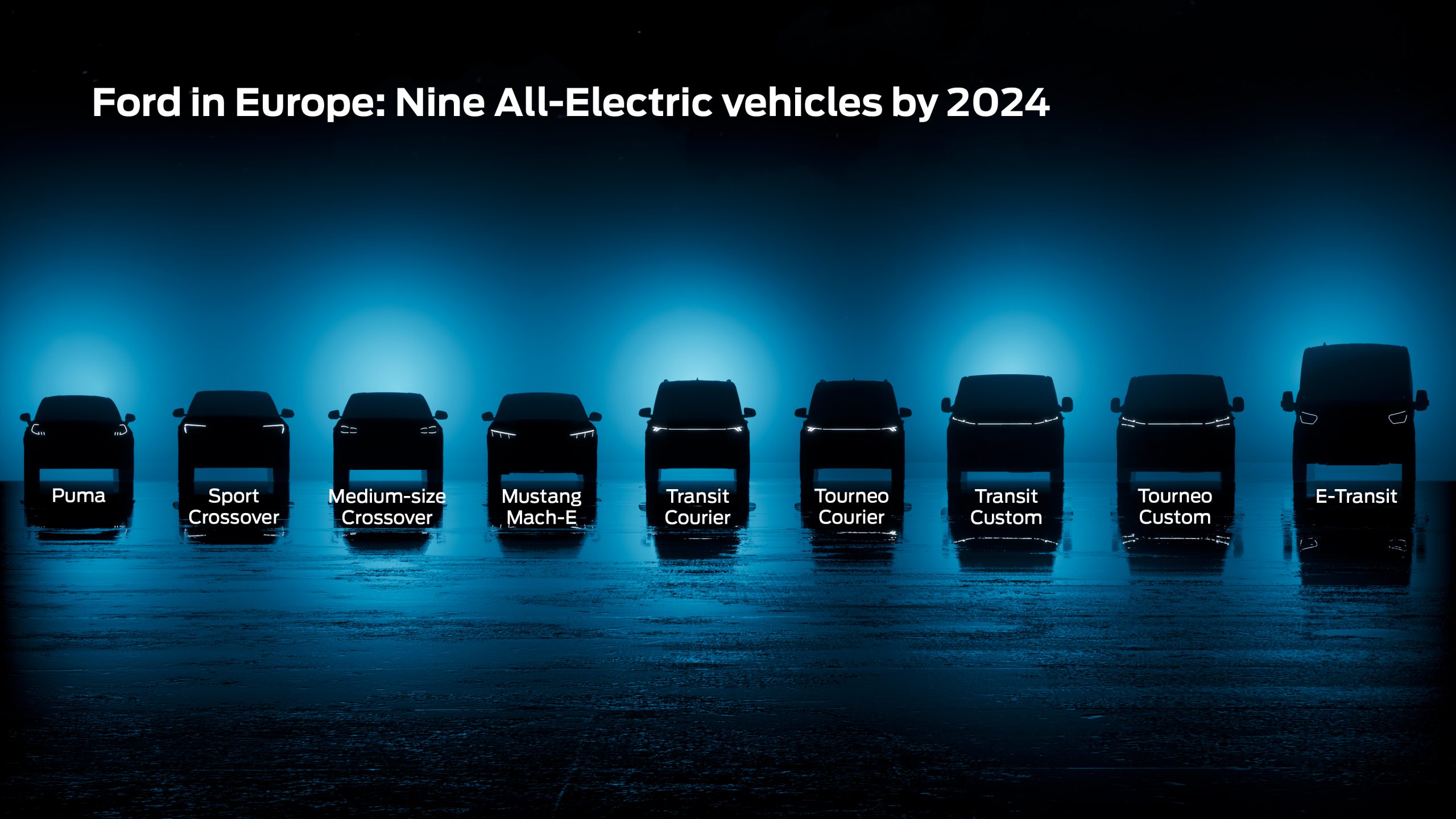
Ford is Europe’s top-selling commercial vehicle brand, and the company plans to introduce several new electric models of its Transit van — “the all-new Transit Custom one-tonne van and Tourneo Custom multi-purpose vehicle in 2023, and the smaller, next-generation Transit Courier van and Tourneo Courier multi-purpose vehicle in 2024.”
“These new Ford electric vehicles signal what is nothing less than the total transformation of our brand in Europe – a new generation of zero-emission vehicles, optimized for a connected world, offering our customers truly outstanding user experiences,” Rowley added.
Ford’s Cologne, Germany EV Hotspot
Ford also said that the first all-electric passenger vehicle to come out of the new Electrification Centre in Cologne will be a five-seat, medium-sized crossover. Crossovers are a widely popular body style and accounted for 58 percent of all Ford passenger vehicles sold in Europe in 2021. Ford plans to unveil the name and design of the new crossover in 2022. Production will begin in 2023.
Ford’s Cologne Electrification Center (Credit: Ford)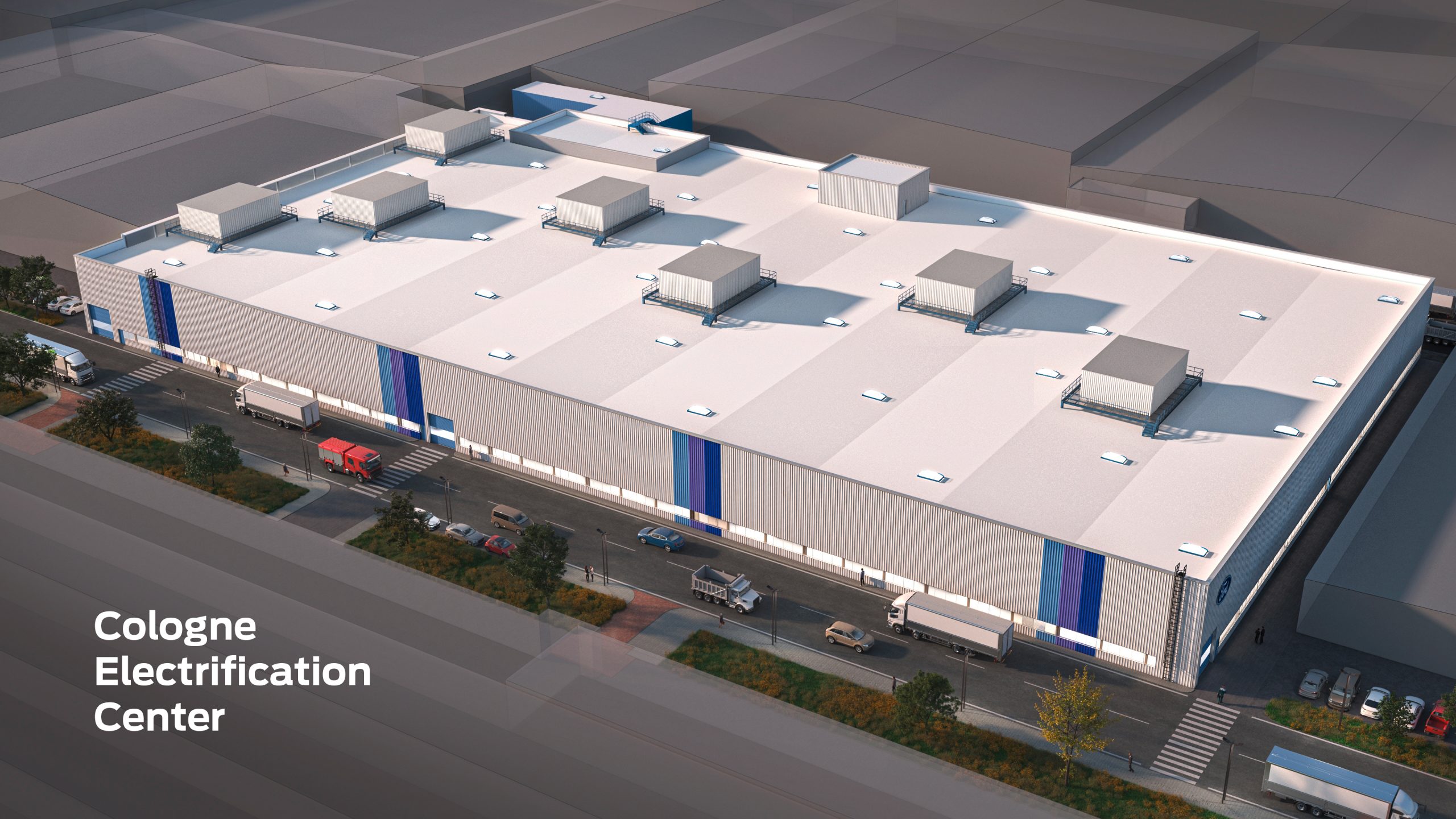
Additionally, Ford said its total investment in Cologne is expected to be $2 billion with the investment including plans for a new battery assembly facility that will begin production in 2024. The automaker projects at least 1.2 million vehicles produced at the Cologne Electrification Centre by 2030.
New battery partnership with SK On Co., Ltd., and Koç Holding
Ford announced that it also signed a non-binding Memorandum of Understanding for a new, industry-leading joint venture in Turkey with battery manufacturers SK On Co., Ltd. and Koç Holding. The plant will be located near Ankara, the country’s capital, and will manufacture high-Nickel Nickel-Manganese-Cobalt (NMC) cells for assembly into battery array modules. Nickel cells have been a focus of many large automakers transitioning to electric cars, as it is widely available. However, surging prices of the metal have contributed to a potential delay in these plans, at least in the short term.
Production is expected to start as early as mid-decade, Ford said, with annual capacity likely to be between 30 and 45 Gigawatt hours.
Ford said the investment will also be supported by the Turkish Government and will benefit large and small commercial vehicle operators across Europe, all while decreasing CO2 emissions.
EV Production Boost in Romania
Ford will also introduce an electric version of its best-selling European vehicle, the Puma. European customers will be able to purchase an all-electric version of the vehicle in 2024. Additionally, the Transit Courier and Tourneo Courio will be produced a the plant in 2023, with all-electric versions being offered the following year.
Ford’s joint venture with Koç Holding, known as Ford Otosan, will assume ownership of the Craiova, Romania plant. “We welcome this opportunity to grow our joint venture with Koc Holding and leverage this strategic partnership to better utilize our resources and know-how in Romania,” Rowley said. “Ford Craiova is today a strong success story, and we believe that through Ford Otosan’s experience and expertise in electrification and commercial vehicles it can reach even higher levels of achievement.”
I’d love to hear from you! If you have any comments, concerns, or questions, please email me at joey@teslarati.com. You can also reach me on Twitter @KlenderJoey, or if you have news tips, you can email us at tips@teslarati.com.

News
Tesla influencers argue company’s polarizing Full Self-Driving transfer decision
Tesla maintains it will honor transfers for orders with initial delivery windows before the deadline and offers full deposit refunds otherwise, citing longstanding fine print that the program is “subject to change at any time.”
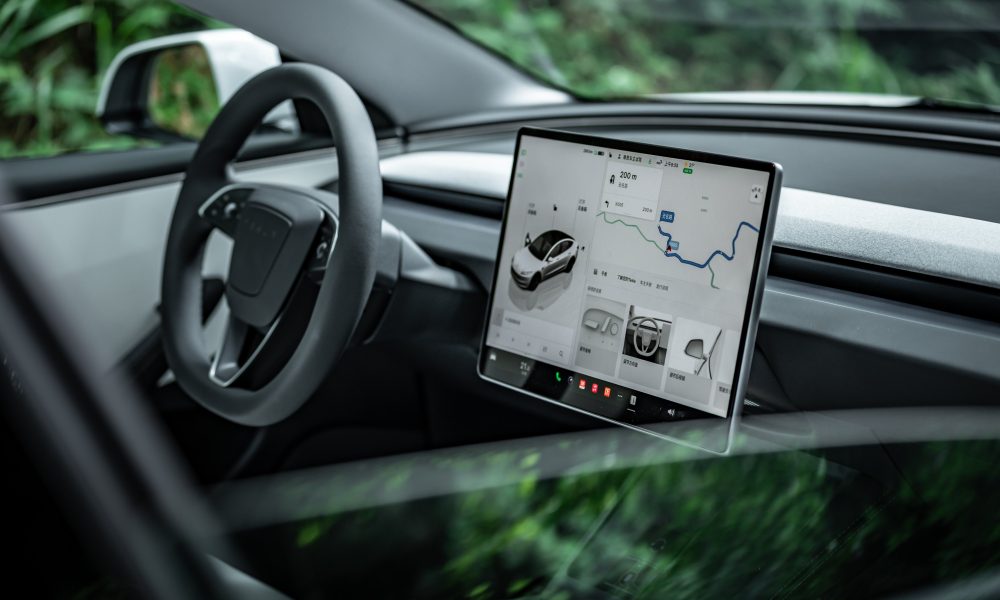
Tesla’s decision to tighten its Full Self-Driving (FSD) transfer promotion has ignited fierce debate among owners and enthusiasts.
The company quietly updated its terms in late February 2026, changing the eligibility from “order by March 31, 2026” to “take delivery by March 31, 2026.”
What began as a flexible incentive to boost sales, allowing buyers to transfer their paid FSD (Supervised) to a new vehicle, now excludes many, particularly Cybertruck owners facing delivery delays into summer or later.
Tesla maintains it will honor transfers for orders with initial delivery windows before the deadline and offers full deposit refunds otherwise, citing longstanding fine print that the program is “subject to change at any time.”
The reversal has polarized the Tesla community, with accusations of a “bait-and-switch” clashing against defenses of corporate pragmatism. Many owners who placed orders under the original wording feel betrayed, especially as production backlogs and new unsupervised FSD rollout complicate timelines.
However, Tesla has allowed them to cancel their orders and receive a refund.
Critics of the decision argue that the change disadvantages loyal customers who helped fund FSD development, calling it poor communication and a revenue grab as Tesla pivots toward subscriptions.
Popular influencers have amplified the divide. Whole Mars Catalog struck a measured but firm tone, acknowledging the original “order by” language but emphasizing Tesla’s right to adjust terms. He has continued to defend Tesla in this particular issue:
Sad to see so many fans trashing Tesla with such extreme language.
LIARS!!! PATHETIC!!! And if you aren’t as furious and angry as they are they are you’re “worshipping” and saying “they can do no wrong”.
Let’s get real here. They’re not liars. They offered FSD transfer to us… https://t.co/3Ay7vGaVR6
— Whole Mars Catalog (@wholemars) March 3, 2026
He criticized extreme backlash as “dramatization” and “spoiled kids,” noting the unsupervised FSD era and broader sales challenges make blanket transfers financially risky. Whole Mars advocated for polite outreach to CEO Elon Musk over the issue.
Rather than “calling them out”, I would simply say “Hey Elon, really hoped to be able to do FSD transfer on my cybertruck but the terms changed. Would really appreciate if Tesla could extend this to everyone who ordered before the terms changes”
that would probably work
— Whole Mars Catalog (@wholemars) March 3, 2026
In a contrasting perspective, Dirty TesLA voiced sharper frustration, posting that blocking transfers feels “crazy” and distancing himself from “people that want to worship a corporation and say they can do no wrong.” His stance resonated with owners who view the policy flip as disrespectful to early adopters.
Popular Tesla influencer Sawyer Merritt captured the frustration felt by thousands. In a widely shared thread viewed over 700,000 times, Merritt detailed how pre-change Cybertruck orders now risk losing FSD eligibility unless their initial delivery window falls before March 31.
It’s not a contradiction, it’s a change in policy that Tesla just made an hour ago. I am trying to check if the change is retroactive to all existing orders, including Cybertruck AWD orders, because if it is, that sucks big time.
— Sawyer Merritt (@SawyerMerritt) February 28, 2026
The controversy underscores deeper tensions—between Tesla’s need for revenue discipline and owners’ expectations of goodwill. As FSD evolves toward unsupervised capability, the community remains split: some see the change as necessary business, others as a broken promise. Whether Tesla reconsiders under pressure or holds firm remains to be seen, but it does not appear they are planning to budge.
News
Tesla Semi’s latest adoptee will likely encourage more of the same
Public visibility matters. When shoppers see a trusted name like Ralph’s running clean, high-tech trucks on public roads, skepticism fades. Competitors such as Albertsons, which pre-ordered Semis years ago, and other chains chasing ESG targets now have proof that electric autonomy works in real-world grocery fleets.
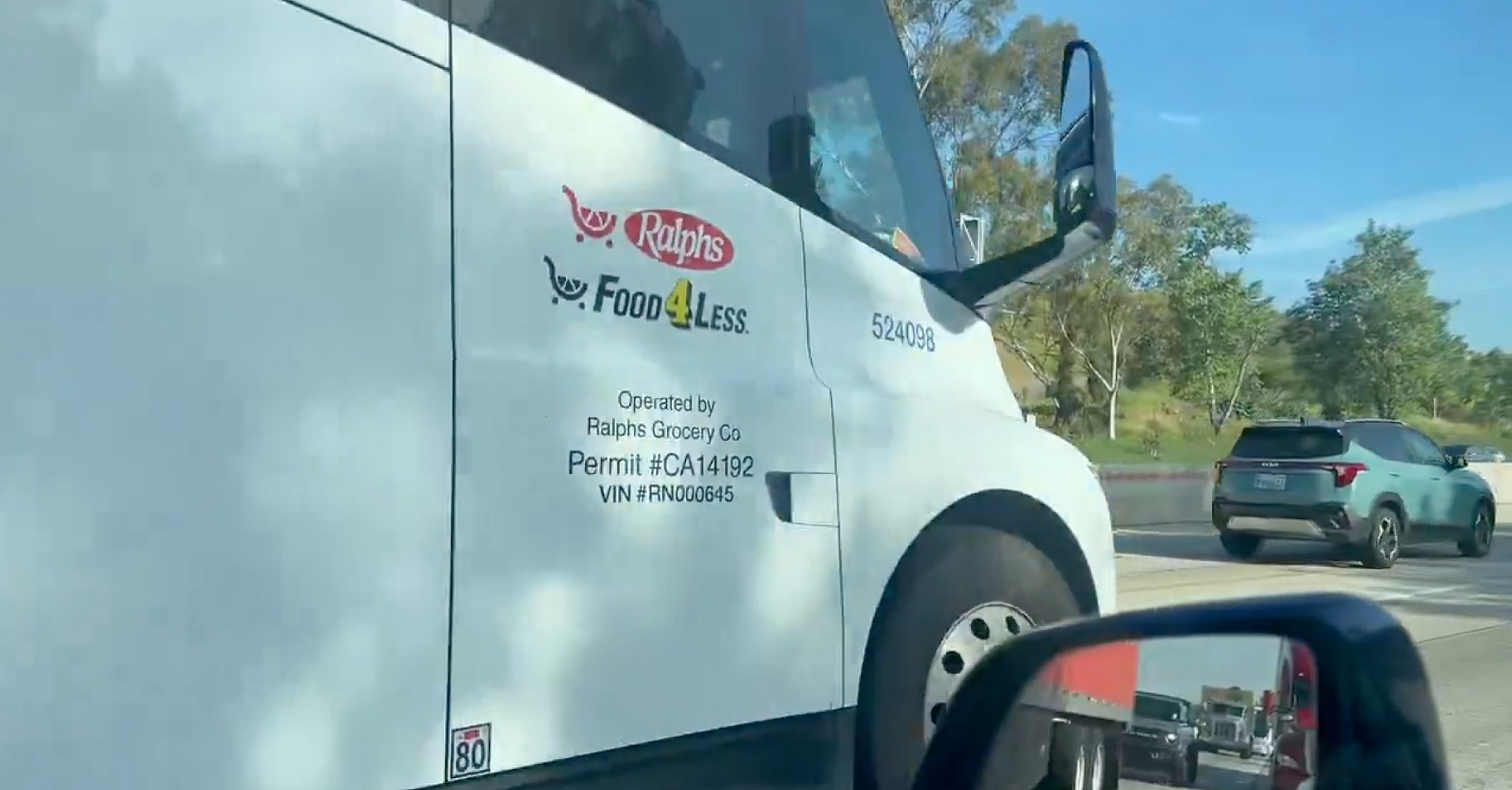
The latest adoptee of the Tesla Semi will likely encourage more businesses in the same realm to adopt the all-electric Class 8 truck, as a new company utilizing the Semi has been spotted in Southern California.
A sleek, futuristic Tesla Semi truck branded for Ralph’s Supermarkets was spotted cruising a Los Angeles highway in a viral 13-second dashcam video posted March 2, by X user ChargePozitive.
Tesla Semi Truck in the wild pic.twitter.com/SnQY8ShMMJ
— ChargePozitive ⚡️➕ (@ChargePozitive) March 2, 2026
This sighting confirms Kroger’s March 2025 partnership with Tesla to deploy up to 500 autonomous electric Semis.
While the initial announcement targeted Midwest supply chains, the California appearance under the Ralph’s banner shows the program expanding to Kroger’s West Coast operations. Ralph’s, a staple for millions of Southern California shoppers, is now hauling groceries with the Semi, which has zero tailpipe emissions and claims up to 500 miles of range per charge.
Tesla Semi pricing revealed after company uncovers trim levels
The timing could not be better for sustainable logistics. Traditional trucking accounts for a massive share of retail emissions, but Tesla’s Semi slashes fuel and maintenance costs while leveraging full autonomy to ease driver shortages and improve safety.
Tesla’s expanding Megacharger network, including new sites along major freight corridors and partnerships like the recently-announced one with Pilot Travel Centers, is removing range anxiety and making nationwide scaling realistic. There’s still a long way to go, but things are moving in the right direction.
Public visibility matters. When shoppers see a trusted name like Ralph’s running clean, high-tech trucks on public roads, skepticism fades. Competitors such as Albertsons, which pre-ordered Semis years ago, and other chains chasing ESG targets now have proof that electric autonomy works in real-world grocery fleets.
PepsiCo’s successful pilots already demonstrated viability, and Ralph’s sighting adds retail credibility.
As Tesla ramps high-volume Semi production through 2026, this isn’t an isolated curiosity. Instead, it’s a catalyst. More grocers adopting the platform will accelerate industry-wide decarbonization, cut operating expenses, and deliver tangible environmental wins.
The future of sustainable supply chains is already on the highway, and Ralph’s just made it impossible to ignore.
Moving forward, Tesla hopes to expand the Semi program into other regions, including Europe, which CEO Elon Musk recently said is a total possibility next year.
Elon Musk
Tesla ramps Cybercab test manufacturing ahead of mass production
Tesla still has plans for volume production, which remains between four and eight weeks away, aligning with Musk’s statements that early ramps would be deliberately measured given the Cybercab’s novel architecture and full reliance on Tesla’s vision-based Full Self-Driving technology.
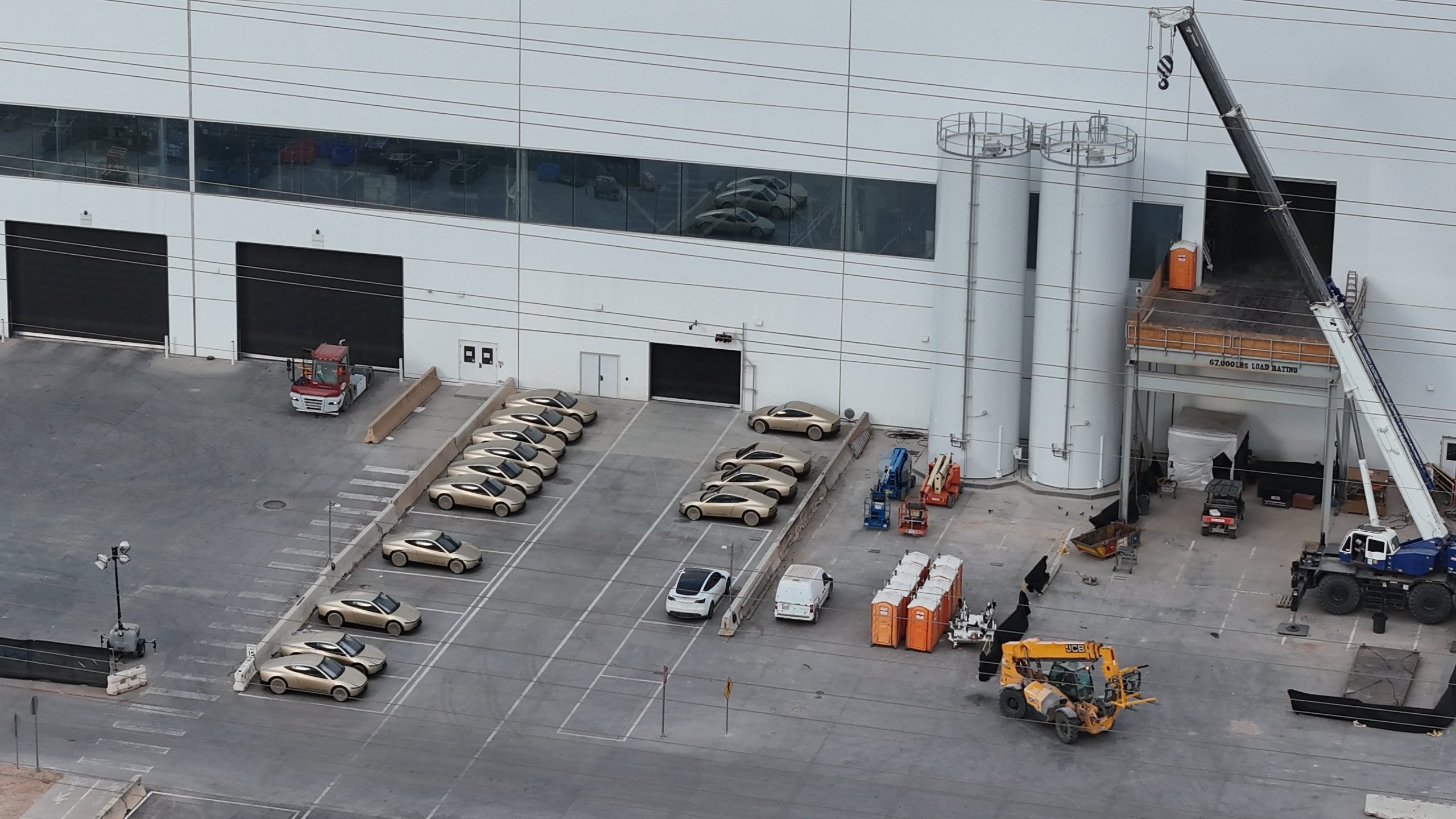
Tesla is seemingly ramping Cybercab test manufacturing ahead of mass production, which is scheduled to begin next month, the company said.
At Tesla’s Gigafactory Texas, production of the Cybercab, the company’s groundbreaking purpose-built Robotaxi vehicle, is accelerating markedly. Drone footage from Joe Tegtmeyer captured striking aerial footage today, revealing what appears to be the largest public sighting of Cyebrcabs to date.
A total of 25 units were observed by Tegtmeyer across the Gigafactory Texas property, marking a clear step-up in testing and validation activities as Tesla prepares for a broader output.
Tesla Cybercab production begins: The end of car ownership as we know it?
In the footage, 14 metallic gold Cybercabs were parked in a tight formation outside the factory exit, showcasing their sleek, autonomous-only design with no steering wheels, pedals, or traditional controls. Another 9 units sat at the crash testing facility, likely undergoing structural and safety validations, while two more appeared at the west end-of-line area for final checks.
Big day for Cybercab at Giga Texas today! Actually, yesterday to kick off March, the production line went into a higher volume & today we see 25 at three main locations, and there were several others I observed driving around too!
I think this may be the largest single grouping… pic.twitter.com/HZDMNv57lJ
— Joe Tegtmeyer 🚀 🤠🛸😎 (@JoeTegtmeyer) March 3, 2026
Tegtmeyer noted additional Cybercabs driving around the complex, hinting at active movement and real-world testing beyond static parking.
This surge follows the first production Cybercab rolling off the line in mid-February 2026, several weeks ahead of the originally anticipated April start.
That milestone, celebrated by Tesla employees and confirmed by CEO Elon Musk, kicked off low-volume builds on the dedicated “unboxed” manufacturing line, a modular process designed to slash costs, reduce factory footprint, and enable faster assembly compared to conventional methods.
Industry observers interpret the jump to dozens of visible units in early March as evidence that Tesla has transitioned into higher-volume test manufacturing.
Tesla still has plans for volume production, which remains between four and eight weeks away, aligning with Musk’s statements that early ramps would be deliberately measured given the Cybercab’s novel architecture and full reliance on Tesla’s vision-based Full Self-Driving technology.
The Cybercab, envisioned as a sub-$30,000 autonomous two-seater for robotaxi fleets, represents Tesla’s bold pivot toward scalable autonomy and robotics.
Tesla fans and enthusiasts on X praised the imagery, with many expressing excitement over the visible progress toward deployment. While challenges remain, including software maturity, regulatory hurdles, and supply chain scaling, the increased factory activity underscores Tesla’s momentum in turning the Cybercab vision into reality.
As Giga Texas continues expanding and refining the manufacturing process of the Cybercab, the coming months will prove to be a pivotal time in determining how quickly this revolutionary vehicle reaches roads in the U.S. and internationally.








